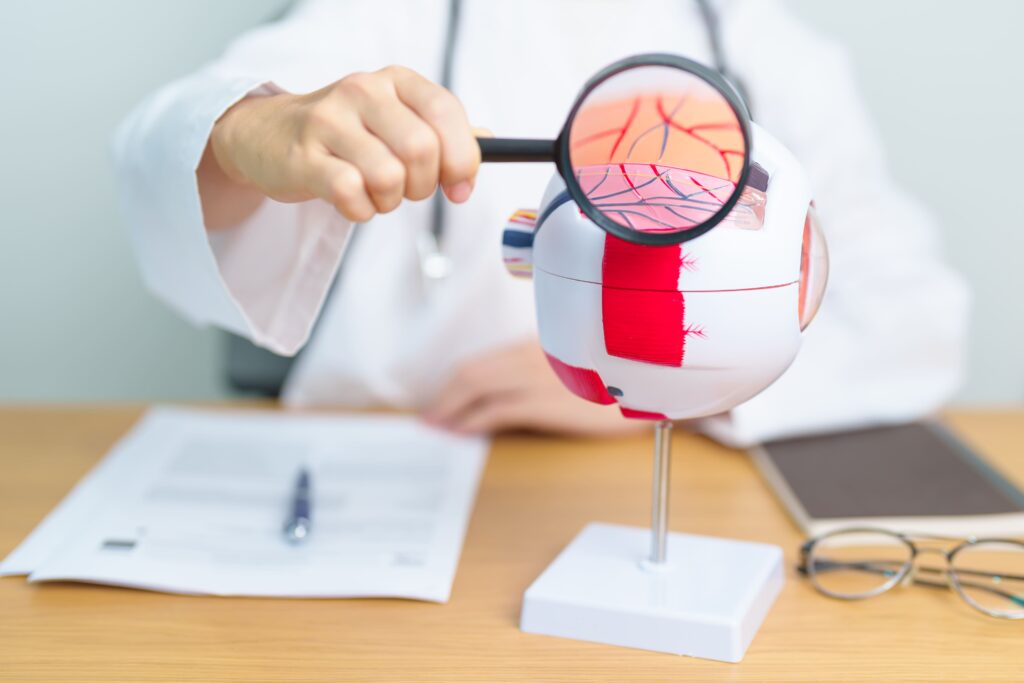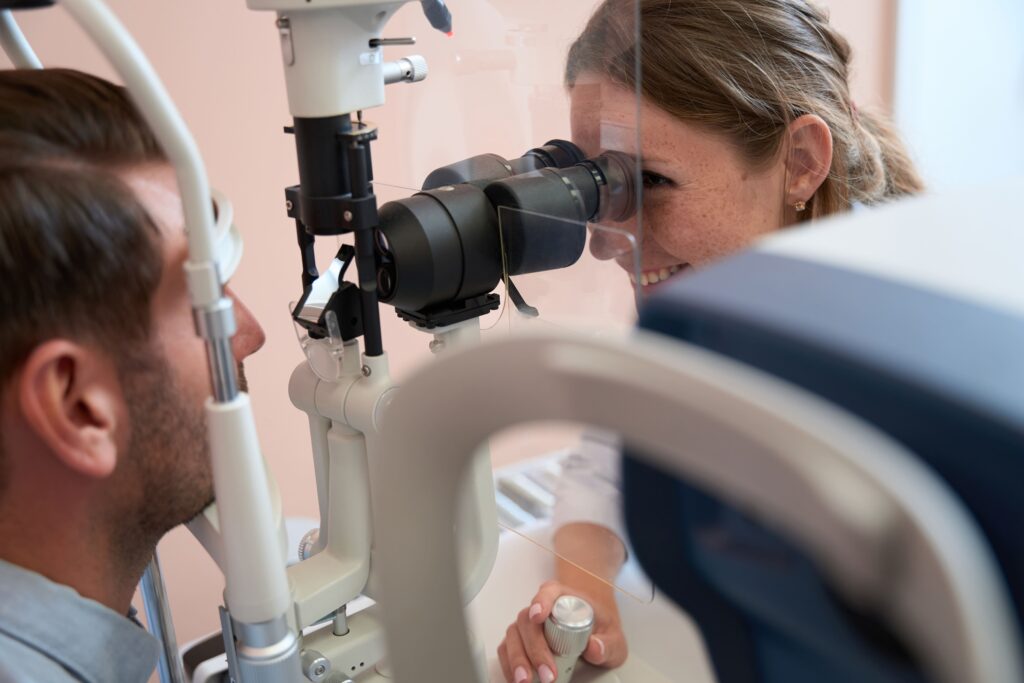Reviewed By: Bradley Middaugh, O.D.
Within the human eye, there’s the retina: the gateway to your perception of the world. It is the delicate layer of tissue responsible for converting light into nerve signals that the brain interprets as images. But because it is so fragile, various conditions can affect it, leading to vision impairment or even blindness. Here are some of the main retina conditions and their associated symptoms.
1. Macular Degeneration
Arguably the most critical retinal condition is Age-related macular degeneration (AMD), which targets central vision. It can impact your ability to drive, read, and recognize faces—easily or at all.
Macular degeneration often affects people over the age of 50. It damages the macula, which thins as we age. This thinning can result in two types of AMD: dry and wet. Dry AMD is more common, which progresses gradually and causes central blurring. Wet AMD involves the growth of abnormal blood vessels beneath the retina, causing rapid and severe vision distortion. The fast deterioration caused by Wet AMD makes it a medical emergency, demanding retina eye surgery as soon as possible.
2. Posterior Vitreous Detachment (PVD)
One condition affecting the retina is Posterior vitreous detachment (PVD), which is when the retina becomes more liquid-like through age. As it manifests, the retina shrinks, moving out of place. Retinal damage symptoms include sudden flashes of light, increased eye floaters, and the sensation of a shadow or curtain descending over the field of vision. Though the condition typically does not cause serious problems, recognizing retinal damage symptoms is crucial, as the weak retina is more prone to retinal tear or detachment if left untreated.
3. Diabetic Retinopathy
People with diabetes are at high risk of developing diabetic retinopathy, a condition caused by damage to blood vessels in the retina due to high blood sugar levels. Symptoms may include blurry, distorted vision and potential blindness in severe cases. This disease has two stages: proliferative and nonproliferative.
While the blood vessels in the retina deteriorate, they can close off. In their place, new abnormal blood vessels grow, known as neovascularization. The weak blood vessels can bleed into the retina and cause scar tissue development. Your retinal ophthalmologist may recommend laser photocoagulation, vitrectomy, and cryotherapy to combat the condition.
Macular Pucker
A macular pucker, also known as epiretinal membrane, is a condition where scar tissue forms on the macula, the central part of the retina, leading to wrinkled retina symptoms. This can cause central vision to become distorted or blurry, leading to wrinkled retina symptoms such as wavy lines, visual distortions, and reduced contrast sensitivity. While mild cases might not require retinal tear treatment, more severe cases could be treated with surgery to remove the scar tissue and improve central vision.
The retina can wrinkle and bulge as the scar tissue wraps and contracts. Vitrectomy surgery can remove the scar tissue if you undergo severe vision loss.

Macular Hole
A macular hole is a tiny break or opening in the macula. Macular holes often form as we age and the gradual shrinking of the virtuous gel within the eye. As the vitreous pulls away from the retina, it can create traction on the macula, forming a hole. After several weeks or months, the tissue stretches and tears. Common symptoms include blurred or distorted vision that worsens over time.
Macular holes eventually destroy your vision at a distance or close range. Vitrectomy surgery is the best way to close the gap and prevent it from reopening.
The First Step To Clear Vision is Booking an Eye Appointment
The experts at Center For Sight SW FL recommend booking an eye exam every one to two years. That way, you can pinpoint these eye problems before they develop. Without proper eye care, your line of sight can be gone in a blink.
Our nationally renowned ophthalmologists and optometrists effectively detect all these common retina conditions and align you with the best treatment or optical aids available. Connect with us and book your next eye appointment today.
**Please note that the suggestions provided in this blog are for general informational purposes only and may not be suitable for your specific insurance plan and retina needs. It is important to consult a qualified healthcare professional for personalized advice and treatment.



